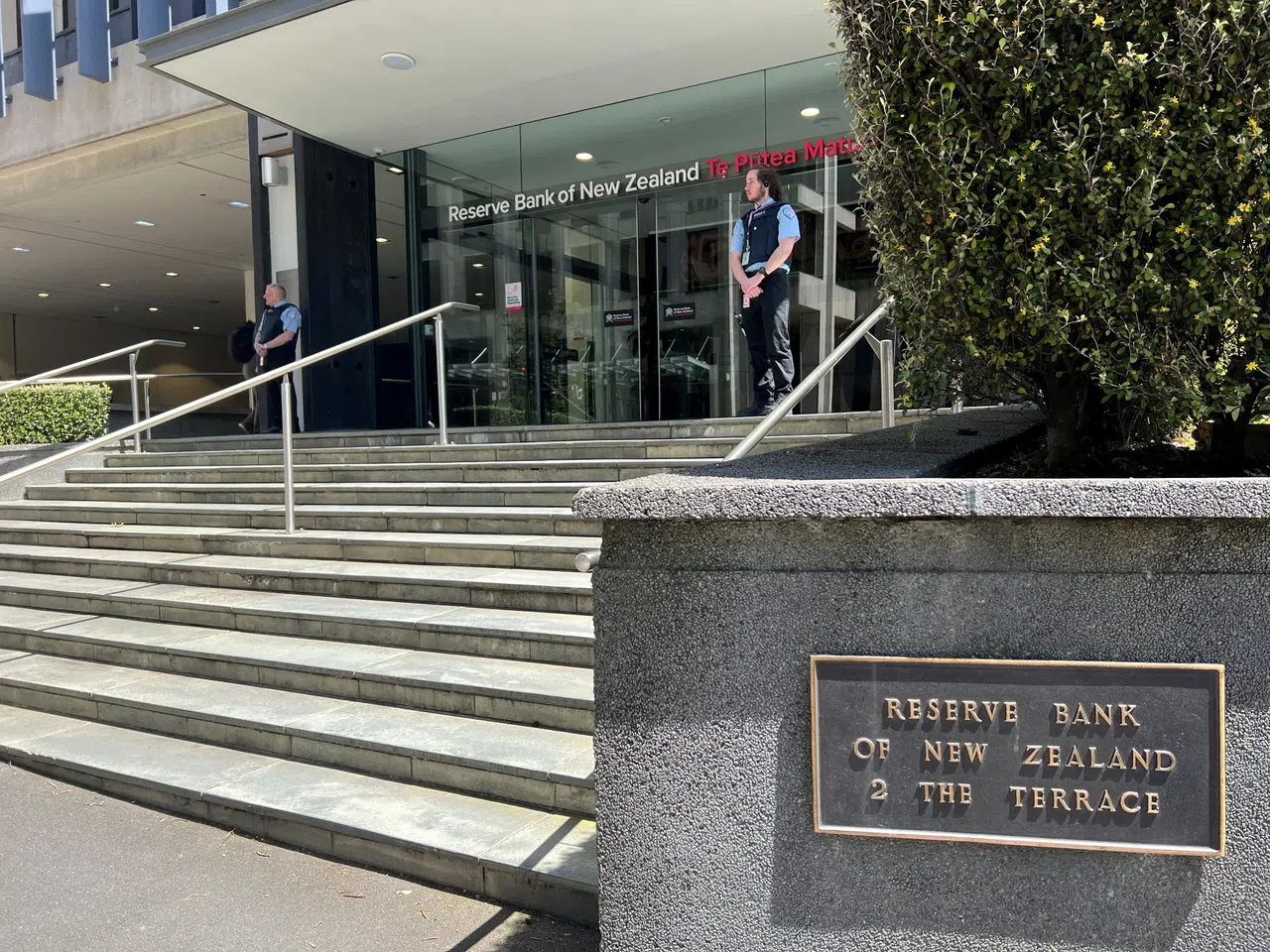NEW Zealand’s central bank kept interest rates unchanged for a sixth straight meeting and said they need to remain high for some time to ensure inflation is tamed.
The Reserve Bank of New Zealand’s (RBNZ) monetary policy committee held the official cash rate (OCR) at 5.5 per cent on Wednesday (Apr 10) in Wellington, as anticipated by all 25 economists in a Bloomberg survey. “The committee is confident that maintaining the OCR at a restrictive level for a sustained period will return consumer price inflation to within the 1-3 per cent target range this calendar year,” the RBNZ said.
The economy is in recession and has contracted in four of the past five quarters, prompting investors to bet that the RBNZ will start cutting rates in the second half of this year. The central bank is reluctant to entertain a pivot to monetary easing as inflation at 4.7 per cent, is still well above its 2 per cent goal, and policymakers are fear that elevated inflation expectations could become entrenched.
“The bank doesn’t want to be seen dropping its guard before it can more confidently claim victory in the war on inflation,” said Abhijit Surya, an economist at Capital Economics in Singapore. “But we still think that it will start cutting rates by August.”
Wednesday’s decision is an interim review rather than a quarterly monetary policy statement, so the bank didn’t publish fresh economic forecasts and there is no news conference with governor Adrian Orr. In a short statement, the RBNZ said the economy “continues to evolve as anticipated”.
In February, the central bank forecast that inflation would fall back into the 1-3 per cent target band by the third quarter this year and slow to the 2 per cent midpoint by the end of next year. Still, it projected it wouldn’t start easing policy until 2025, saying it doesn’t want to lengthen the time it takes to bring inflation to heel.
GET BT IN YOUR INBOX DAILY
Start and end each day with the latest news stories and analyses delivered straight to your inbox.
Committee members repeated that view on Wednesday, saying “there remains limited tolerance to increase the time to achieve the inflation target while inflation remains outside the target band and while inflation expectations and pricing intentions remain elevated”, according to the record of meeting.
Persistent services inflation remains a risk and goods price inflation remains elevated, they said, adding that increases in local taxes, insurance and utility costs could also further slow the decline in headline inflation.
At the same time, the committee said business and consumer confidence remain particularly weak, “which could lead to more unemployment and financial stress” and slow inflation faster than expected.
Several economists are tipping New Zealand’s recession continued in the first quarter and that unemployment will rise throughout 2024. The New Zealand Institute of Economic Research yesterday warned there’s a risk of a hard landing for the economy after its quarterly survey revealed firms are facing squeezed profits, prompting them to invest less and fire workers. The survey also showed fewer firms intended to raise prices.
“Globally, while there are differences across regions, economic growth remains below trend and is expected to remain subdued,” the RBNZ said. “However, most major central banks are cautious about easing monetary policy given the ongoing risk of persistent inflation.”
Most economists expect the first rate cut will occur in August, although some including ANZ Bank don’t see reductions starting until next year. “We expect domestic inflation will fall a little more slowly than the RBNZ expects and so currently see cuts as a 2025 story,” ANZ New Zealand chief economist Sharon Zollner said after the statement. BLOOMBERG






